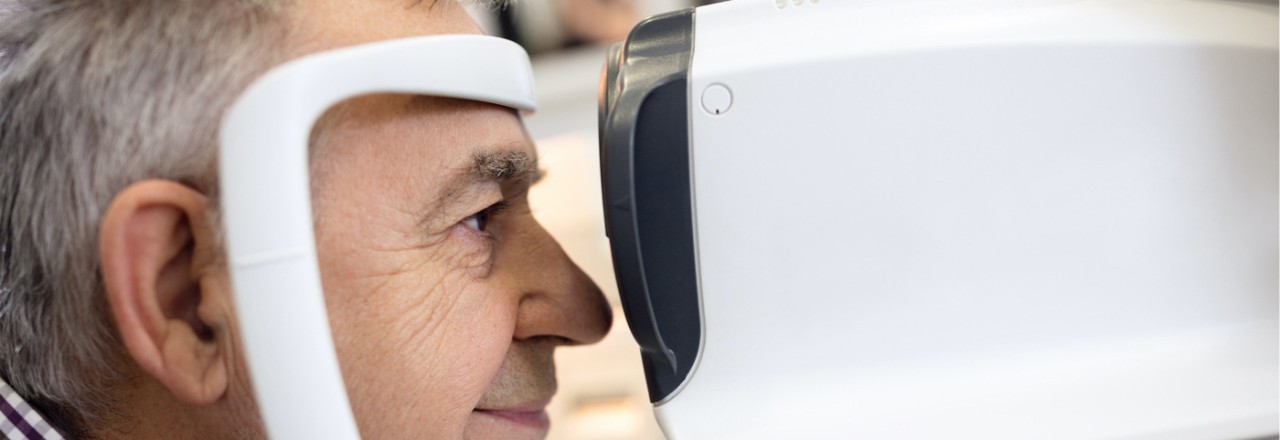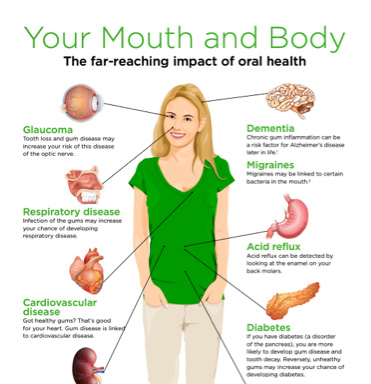Is there a link between glaucoma and oral health?

You might not be thinking about your eyes while brushing your teeth each day, but researchers are keeping their eyes on a possible connection between poor oral health and glaucoma.
What is glaucoma?
Called the “silent thief of sight,” glaucoma is a group of diseases of the optic nerve that slowly cause a loss of vision and can lead to blindness.
With more than a million nerve fibers, the optic nerve connects the retina to the brain. Pressure on these nerves can increase the risk of optic nerve damage. One known threat to the optic nerve is high blood pressure, but there may be other threats as well.
What’s the connection between glaucoma and oral health?
Recent studies have linked periodontal (gum) disease to an increased risk of glaucoma. Oral infections, especially those connected with dental disease, may trigger a series of events where the bacteria from an inflamed tooth or gums spreads to the optic nerve.
Because an infection in the ear, nose or throat area can cause pressure in the optic nerve, it’s important to ensure that any infection in that area be treated as quickly as possible to avoid spreading to other areas of the body.
What if I already have glaucoma?
If you've already been diagnosed with glaucoma, maintain your treatment plan as prescribed by your physician. And make sure to follow these steps:
- Take advantage of regular dental exams and cleanings to keep your mouth healthy and lower your chance of infection.
- If you already have gum disease, make sure you get and maintain treatment to keep it from getting worse.
If you are scheduled for a dental procedure that requires sedation, be sure to tell your dentist that you have glaucoma. You should avoid sedatives that contain ingredients that can increase pressure in the optic nerve. Let your dentist know of any medications you are taking before you schedule any dental treatment.

Last updated January 4, 2022
Related articles:
The oral health information on this website is intended for educational purposes only. Always consult a licensed dentist or other qualified health care professional for any questions concerning your oral health.


